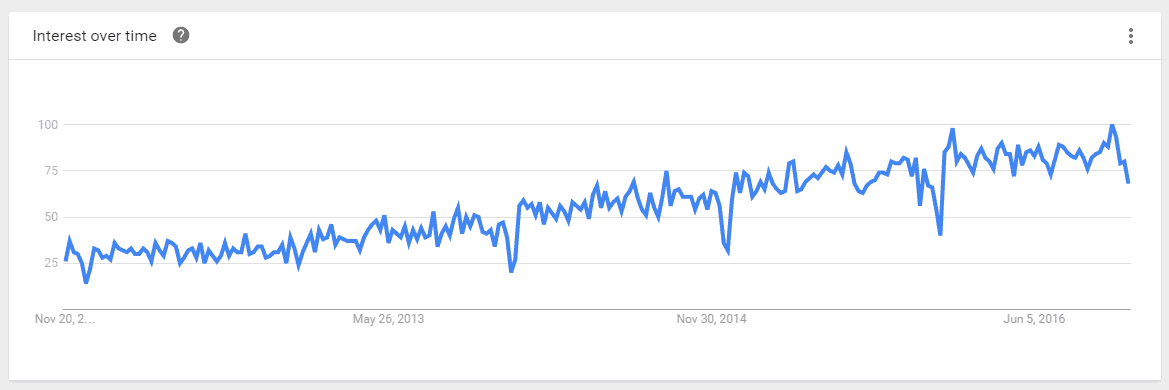
If you run a business that does any online marketing, you've likely heard the term marketing automation or maybe you already use a one of the many tools available.
You'll see new marketing automation tools popping up just about every quarter. This Google trends graph shows just how popular and steady the term has been growing over the last 5 years.

What is this marketing automation, you ask? The boring, technical definition is: Software designed for small businesses to more effectively market themselves by tracking prospects and automating marketing and sales tasks.
A better definition and one I really like is simply 'scaling personal attention'. In other words, marketing automation allows you to multiply yourself and give prospects information tailored to who they are and where they are during the buying process.
Marketing automation allows you to segment your prospects into meaningful groups and market to them differently based on their needs and pain-points.
Below you'll find 3 marketing automation myths that seem to be floating around.
Myth 1: Automation will remove me from my business
This one couldn't be any further from the truth. In order to automate anything in your business you need to first identify your processes and create systems that can be repeated. Identifying processes and creating business systems is one of the most engaging activities you'll ever do in your business. This process doesn't remove you from the business, but brings you closer and helps you design intentional and repeatable experiences for your prospects and clients.
There are few things more rewarding than architecting a system that can function without the business owner's time or on-going input.
Myth 2: Automation is impersonal
While on the surface, this sounds true, let's dig a bit deeper. Remember my definition of 'scaling personal attention'?
Marketing automation allows you to construct a system that will deliver very relevant information to your prospects based on who they are and where they are in the buying process. A very simple example is that you ask your prospects what I call 'the big question' when they first interact with your brand. In other words, what one question will tell you more about that person as it relates to your business than anything else? This is generally a pain/pleasure-point identifier.
If you're a chiropractor, find out (literally) where their pain is; back, neck, knees, etc. If you're a landscaper, find out if they have dead grass or not enough time to do it themselves. Each answer will let you know how to market differently to your prospects.
Let them answer and then use automation to funnel them down a marketing path that's specific to their needs. This is the sort of automation that makes your business LESS impersonal because you're selling them a solution to thier unique problem rather than trying to convince them of the benefits of your product or service.
Here's a quick example of a tool I use called Infusionsoft that routes prospects down different paths based on who they are and how they answer specific questions. You'll see that each prospect goes down a single route, making it very personal to who they are and where they are at in the process.

Here's another quick example of why marketing automation is actually more personal than traditional marketing tools; When was the last time you consistently sent handwritten thank you cards and birthday cards to your customers? Check out this link to learn how to do it automatically.
Myth 3: I need more leads
I won't argue that it's nice to have more leads.
But if you're like many of the businesses I speak with, I'll bet you already have a database of leads.
I'll argue that what you really need is more sales from the leads you already have. Marketing automation allows you to create follow up systems that will reach out to prospects as they show interest. You know the saying, 'people buy when they're ready to buy, not when you're ready to sell'. Creating follow up systems allow you to stay top of mind by sending timely, relevant information to your prospects throughout the buying process.
Below you'll find an example of leads that are engaging with content I send them. My marketing automation tool ranks their engagement and shows me who's more likely to buy or respond positively to a personal phone call.

So it isn't more leads you need, it's a better system to convert those leads into sales. Marketing automation tools allow you to just that.
There you have it. 3 marketing automation myths....busted.
If you're interested in learning more about how these types of tools can help your business grow, check out this free webinar called Convert more leads into customers with personalized, automated follow-up
Any other myths out there that you've heard? Let's bust them in the comments below.
